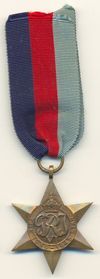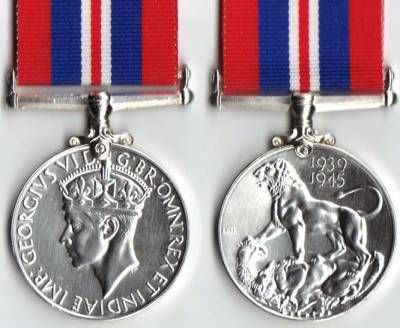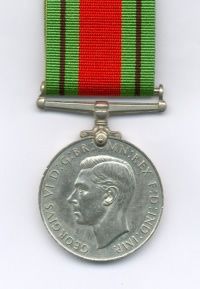
|
|
SUBSIM: The Web's #1 resource for all submarine & naval simulations since 1997
 |
SUBSIM: The Web's #1 resource for all submarine & naval simulations since 1997 |
|
|
 08-25-14, 08:47 PM
08-25-14, 08:47 PM
|
#1 |
|
Navy Seal
 |
My grandfather (who passed away a year ago) was too young to serve in WWII, but he survived the German occupation as a 14-year-old. His village was smack in the middle of the Demyansk pocket, so that was certainly no walk in the park.
The initial occupation by the Germans was almost peaceful - they just showed up one day. The whole situation was confusing and caught everyone unprepared - no orders to evacuate were given, the village youth didn't get notice to enlist, and when the Wehrmacht arrived, the place was basically in its peacetime state. The villagers found the German soldiers rude and manner-less, but I never heard any stories of abuse or mass executions, rapes, mistreatement, nothing like that - they were just matter-of-fact and acted like they had a job to do. The locals found it both revolting and hilarious that the Germans didn't bother to cover themselves or seek privacy when doing their, um, bathroom business. Apparently the soldiers found the locals' revolted reactions just as amusing. Otherwise, the German officers would simply show up at a house and state that they were taking it over, or that the residents were to hand over their food or livestock or tools - no other questions asked, not that anybody dared. A couple of weeks later all fit young men were ordered to move out, ostensibly to a work camp. My grandfather's oldest brother, who was 20, was in this category and was marched off - he was never heard from again. Many more were taken away in subsequent weeks, and the village's population shrunk noticeably, but largely without violence. Worse things might have come later, but as the Soviet counter-offensive began, the area quickly found itself in heavy fighting and there was no time for that. There was no direct battle for the village, but it was an important depot for the Germans. Over the course of the winter, with the Germans surrounded, things were even worse for the locals. A number of people starved. Finally, one day the Germans just up and left - no notice, no warning. The Soviet troops were nowhere to be seen and the locals cautiously went out of their hiding places. What they found in the surrounding woods were trenches full of abandoned German equipment. Kids quickly made a game of shooting crows with MG-42s. However, the weapons only occupied them for a short bit because everyone was really, really hungry - quickly, the hunt turned to finding German food tins and German bayonets - after all, machineguns aren't so good for opening cans. Fights broke out between groups of kids and teenagers over said tins, and some had to be dissuaded from shooting each other with their trophy weapons. After the trenches around the village were scoured, my grandfather and his best friend noticed that an old barn in the village, which the Germans took over early in their invasion, remained untouched. Without telling anyone, they decided to go check it out, in hopes that they could find a bit more food that they wouldn't have to fight over. The barn had a heavy wooden door, which took all my grandfather's 14-year-old strength to pull - but he was lucky to be doing the pulling. The entrance was boobytrapped, but the heavy wooden door absorbed most of the blast - only his feet and ankles were hit by the shrapnel, and he miraculously escaped amputation, spending more than a year recovering in hospital afterwards. His friend, standing right in front of the door as it opened, wasn't so fortunate and was killed instantly. My grandfather didn't actually like to talk about it much. I mostly learned it from his relatives, including family who still live in that same village near Demyansk.
__________________
There are only forty people in the world and five of them are hamburgers. -Don Van Vliet (aka Captain Beefheart) Last edited by CCIP; 08-25-14 at 09:11 PM. |

|

|
 08-25-14, 09:02 PM
08-25-14, 09:02 PM
|
#2 |
|
Wayfaring Stranger
|
My Grandfather Johann was an AA gunner on the eastern front. Having managed to survive the entire war he was walking home on the autobahn two days before the armistice and was captured by an American patrol. He spent the next year as a POW.
He was actually lucky though. The American unit that over ran his home town of Altenbuch apparently picked off several of his fellow Altenbuchers returning home from the war as they walked up the road to the town. Their graves along with the rest of the towns dead from that war are in an overgrown little plot located on the opposite hill from the town cemetary. He took me to see it when I was a youngster.
__________________
 Flanked by life and the funeral pyre. Putting on a show for you to see. |

|

|
 08-25-14, 09:34 PM
08-25-14, 09:34 PM
|
#3 |
|
Navy Seal
 |
I also know a bit about two of my great-grandfathers in WWII, who were both officers. One of them was an engineer and served north of Leningrad during the siege, facing the relatively quiet Finnish lines. From my understanding, one day he went out to inspect barriers out in no man's land and was shot in the leg by a Finnish sniper - all signs point to this being done on purpose, to draw out other troops to his help. The Russian soldiers knew that trick, it seems, and so he lay there bleeding with his shattered leg until nightfall, just meters away from friendly lines. The leg was amputated and my great-grandfather never recovered from this psychologically - he turned into an abusive alcoholic who eventually lost his family and died alone in his 40s, only a few years after the war.
My other great-grandfather was already an older man when the war started - he was 45, and a well-respected doctor. He served through the war with the rank of Junior Lieutenant, from what I understand largely in the Western part of Russia, Belarus and the Baltics. (Side note, by the way, is that by his ethnicity he was basically Saami). His job was field surgeon - and field surgeon he certainly was; at one point, his "operating room" was caught up in a mortar barrage, and he was heavily wounded, spending the rest of his life with a piece of shrapnel embedded inside the back of his skull. After the war, he was awarded several medals and returned to his life as a doctor. He is remembered by all as a calm, jolly, intelligent guy who liked to smoke his pipe, drink vodka and tell stories - just not about the war - and was always great to his kids and grandkids. |

|

|
 08-25-14, 10:23 PM
08-25-14, 10:23 PM
|
#4 |
|
Lucky Jack
 |
http://www.subsim.com/radioroom/show...62&postcount=8
Sadly the pictures died with fotopic but I still have them and can put them back up if anyone would like to see them.  Also this thread, from more recently: http://www.subsim.com/radioroom/show...47&postcount=5 |

|

|
 08-26-14, 01:50 AM
08-26-14, 01:50 AM
|
#5 | |
|
Starte das Auto
|
Quote:
We are ever mindful that Hitler deprived many German people of their relatives too... Last edited by Eichhörnchen; 08-26-14 at 05:21 AM. |
|

|

|
 08-26-14, 06:04 AM
08-26-14, 06:04 AM
|
#6 |
|
Admirable Mike
Join Date: Mar 2004
Location: Canada
Posts: 1,338
Downloads: 421
Uploads: 0
|
My Dad was a chief petty officer/stoker aboard the HMCS Ottawa. She was a destroyer escorting convoys.
He was also a scuba diver commando as the need arose. The Ottawa was stopped to pick up survivors on a cold September night in 1942 when the torpedoes hit. The sub was U-91. Less than 40 men were rescued, my Dad being one of them. He was saved by an unknown hero, because my Dad was injured severely in the blast. The Captain of the ship went down, but was seen giving his life preserver away. There were more than two heroes that night, but I think of those two. The injury ended the war for Dad and he made it home.
__________________
Game Designer: Close The Atlantic - World War Three https://boardgamegeek.com/boardgame/...orld-war-three |

|

|
 01-13-15, 01:50 PM
01-13-15, 01:50 PM
|
#7 |
|
Soundman
 Join Date: Mar 2013
Location: Cannock
Posts: 146
Downloads: 18
Uploads: 0
|
A true story my dad told me.
At the end of WW2 he was a Polish soldier attached to the British army. He required dental treatment and was attended to by an army dentist who was Scottish. The dentist must have had a rough hand, cos it caused my dad to swear in Polish, and by golly he could swear in Russian and German as well if he wanted to. The dentist calmly apologised in perfect Polish. Dad never talked too much about the serious side of war, he was always just grateful he survived.
__________________
I hope they're still open, I'm bostin for a pint of Banks's  U-15 [SIGPIC][/SIGPIC] |

|

|
 01-14-15, 12:21 PM
01-14-15, 12:21 PM
|
#8 |
|
Still crazy as ever!
Join Date: Jan 2008
Location: A little south of sanity
Posts: 3,375
Downloads: 180
Uploads: 1
|
My granddad never really spoke much about the war. I know he served in India, and he said he was a sniper. When I was young, my granddad taught me to count from 1 to 5 in Hindi. I always thought he was pulling my leg until I went to India many years later, and bugger me if the old git wasn't telling the truth!
 I still have his war medals in a drawer upstairs: I still have his war medals in a drawer upstairs: 1939-45 Star  War Medal  Defence Medal
__________________
 Hanging on in quiet desperation is the English way... |

|

|
 01-14-15, 01:45 PM
01-14-15, 01:45 PM
|
#9 |
|
Navy Seal
 |
My dad was in the USAAF in WWII. He was a fighter plane crew chief in the 352FG 487th FS in both Bodney England, and later Asch, Belgium. His squadron was the only 8th Air Force Squadron to be awarded a Distinguished Unit Citation. This award came after a mission flown from the Asch Belgian airfield during Operation Bodenplatte January 1, 1945 when 12 pilots of the 487th, led by Colonel Meyer, shot down 24 attacking German fighters without a loss while under a strafing attack on takeoff. He said the ground crew all watched the action from their trenches.
__________________
 "Some ships are designed to sink...others require our assistance." Nathan Zelk 
|

|

|
 01-14-15, 01:54 PM
01-14-15, 01:54 PM
|
#10 |
|
Starte das Auto
|
Thanks for that very interesting Post, HW3. I find the "Bodenplatte" episode totally fascinating, and have collected a number of books about it including one in Polish (which I'll have to ask Kranz to help me with for some of the photo captions).
The end of the Reich is a riveting study and this last fling of the Luftwaffe especially so. Oh, to have actually seen it... |

|

|
 05-28-16, 03:29 AM
05-28-16, 03:29 AM
|
#11 |
|
Starte das Auto
|
I remember seeing a TV programme about a reunion of the Afrika Korps. You always get the feeling that the Desert Rats had a special regard for these men and that their war was untainted by the atrocities of the SS, I don't know for sure. But we also appreciated that they were led by a decent and honourable man, Rommel.
__________________

|

|

|
 05-28-16, 05:24 AM
05-28-16, 05:24 AM
|
#12 |
|
Lucky Jack
 |
Pretty sure Luftwaffe pilots had get togethers post-war, also pretty sure that some uboat crews did, but I think a lot of them were instigated by former allied soldiers, sailors and airmen. For most Germans I think they wanted to forget it happened and focus on putting Germany back together, well...whatever half of it they were living in.
I certainly imagine that reunions in Eastern Germany were a good way to get a room full of Stasi. 
|

|

|
 05-28-16, 06:44 AM
05-28-16, 06:44 AM
|
#13 |
|
Dipped Squirrel Operative
|
"Hitler tried to get my dad"
I guess it was nothing personal. Mind you after all, England declared war to Germany, not the other way round. You know "Churchill then tried to get my" dad, too. As well nothing personal, of course. Regarding veterans, reunions and the like: A lot of german soldiers of course plain did not suvive, after the war there was a big dent in the numbers of young male population, in Germany. Then there were reunions, but a lot of soldiers had not exactly known what was going on in Germany, in concentration camps and so on. The civilian population living near concentration camps, knew more about that. The Wehrmacht of course perpetrated atrocities, too. Let's say a lot were not particularly proud After all when seeing all that, all but the most fanatic idiots would have held patriotic (!) reunions or whatever. They were forced to realize what had happened. That they met inofiicially as friends who had gone through hell, of course. Atrocities perpetrated by the Allies have never been punished or publicised, so their soldiers probably did not have the urge to look into their own country's behaviour, let alone be critical about themselves. This is certainly not true for all soldiers or people who have lived through the war, but i think for most.
__________________
 >^..^<*)))>{ All generalizations are wrong. |

|

|
 01-14-15, 04:20 PM
01-14-15, 04:20 PM
|
#14 |
|
Silent Hunter
 Join Date: Apr 2002
Location: standing watch...
Posts: 3,856
Downloads: 344
Uploads: 0
|
my Great-Uncle from Toronto served in the RAF as a navigator during the war. His bomber was shot down over Burma and he spent several weeks walking through the jungle back to Allied lines.
I never knew any of this while he was alive. His daughter told me the story at his funeral and even she only knew the bare bones, like a lot of veterans from that generation, he never talked about the war.
__________________

|

|

|
 03-02-15, 11:44 AM
03-02-15, 11:44 AM
|
#15 |
|
Starte das Auto
|
 Hitler didn't get my Dad: after fighting in NW Europe he went on to the Control Commission in Germany, then the Korean War. The peculiar tone of his tie in this photo is due, apparently, to its being red, and worn to denote that he was hospitalised. He said he got spotted by a senior NCO in Lincoln wearing this, who didn't know what it was for, and bawled him out for being improperly dressed; I think of him every time I pass the spot. And along with eddie, a fair few of us must be thinking of our old Dads right now... Last edited by Eichhörnchen; 03-02-15 at 11:57 AM. |

|

|
 |
| Thread Tools | |
| Display Modes | |
|
|
